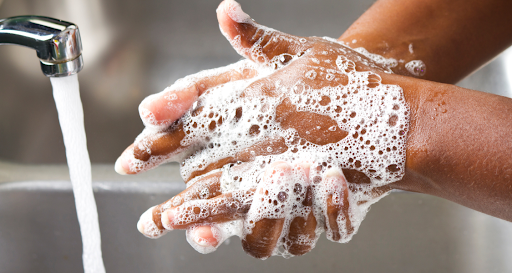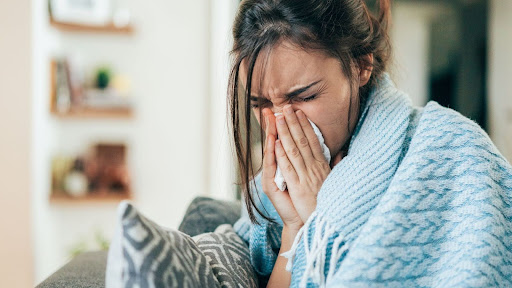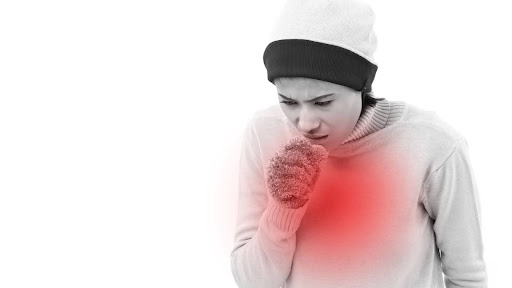Recognizing Body Dehydration Symptoms: A Health Guide
4 min read
By DocGenie , Published on - 17 January 2025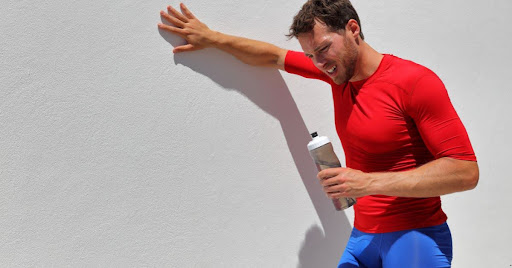 Water is essential for every cell, tissue, and organ in our body. When the body loses more fluids than it takes in, dehydration occurs — a condition that can affect anyone, regardless of age or activity level. While mild dehydration may cause fatigue or dry skin, severe dehydration can be life-threatening. In this blog, we will explore what dehydration is, its key symptoms, causes like alcohol, and visible indicators such as dehydration lines under the eyes.
Water is essential for every cell, tissue, and organ in our body. When the body loses more fluids than it takes in, dehydration occurs — a condition that can affect anyone, regardless of age or activity level. While mild dehydration may cause fatigue or dry skin, severe dehydration can be life-threatening. In this blog, we will explore what dehydration is, its key symptoms, causes like alcohol, and visible indicators such as dehydration lines under the eyes.What Is Dehydration in the Body?
 Dehydration happens when your body doesn’t have enough water to function normally. This can result from inadequate fluid intake, excessive fluid loss (through sweating, vomiting, or diarrhea), or a combination of both.
Dehydration happens when your body doesn’t have enough water to function normally. This can result from inadequate fluid intake, excessive fluid loss (through sweating, vomiting, or diarrhea), or a combination of both.Water makes up about 60% of an adult's body weight, playing a vital role in:
- Regulating temperature
- Lubricating joints
- Transporting nutrients
- Removing waste
Even a 2% loss in body water can significantly affect physical and cognitive performance.
What Causes Dehydration?
Dehydration can be triggered by various factors, including:- Not drinking enough water: Common in elderly individuals or those who are too busy.
- Excessive sweating: From exercise or high temperatures.
- Diarrhea and vomiting: Rapid fluid loss leads to quick dehydration.
- Fever: Raises the body’s fluid needs.
- Alcohol consumption: Diuretic effects increase water loss.
- Certain medications: Diuretics, blood pressure medicines, or laxatives.
What Is a Dehydration Reaction?
A “dehydration reaction” refers to a biological process where water is removed from molecules. While this term is mostly used in chemistry or biology, in health contexts it may be misused to describe the body’s response to being dehydrated.In such cases, a dehydration reaction in the body could imply:
- Rapid heart rate
- Dry mouth
- Dizziness or fainting
- Reduced urine output
These signs indicate that your body is reacting to water deficiency and attempting to conserve fluids.
Common Body Dehydration Symptoms
Identifying dehydration early can help prevent serious complications. The symptoms can range from mild to severe based on the fluid deficit.Mild to Moderate Dehydration:
- Thirst
- Dry lips and mouth
- Headache
- Dark yellow urine
- Decreased urination
- Muscle cramps
- Fatigue or sluggishness
Severe Dehydration (Medical Emergency):
- Dizziness or confusion
- Rapid heartbeat
- Low blood pressure
- No sweating
- Sunken eyes
- Cool, dry skin
- Unconsciousness
Infants and older adults are particularly vulnerable and may not show clear signs until the condition worsens.
Does Beer Cause Dehydration?
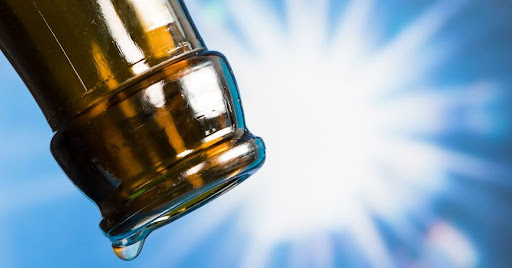 Yes, beer and other alcoholic beverages can cause dehydration.
Yes, beer and other alcoholic beverages can cause dehydration.Alcohol is a diuretic, which means it increases the production of urine by:
- Inhibiting antidiuretic hormone (ADH), which normally helps the kidneys retain water.
- Leading to frequent urination, which accelerates water loss.
Even though beer contains water, the alcohol content outweighs the hydration benefits, especially when consumed in large quantities.
Tip:
If you're consuming alcohol, drink a glass of water between drinks and avoid drinking in hot climates or during workouts.Dehydration Lines Under Eyes: A Visible Clue
One often overlooked sign of chronic or moderate dehydration is fine lines or creases under the eyes.These "dehydration lines" occur due to:
- Loss of skin elasticity
- Reduced hydration in the dermal layers
- Tiredness or poor blood circulation
Dehydrated skin also tends to look dull, flaky, and more prone to irritation. Hydrating the body adequately and applying a moisturizing under-eye cream can help reduce their appearance.
How to Prevent Dehydration
Preventing dehydration is relatively simple but requires consistent effort, especially in hot weather or during illness.Key Prevention Tips:
- Drink water regularly, even if you don’t feel thirsty.
- Eat hydrating foods like watermelon, cucumbers, oranges, and lettuce.
- Avoid sugary drinks, caffeinated beverages, and excess alcohol.
- Rehydrate during and after exercise with water or electrolyte drinks.
- Monitor your urine color – pale yellow means you’re likely well-hydrated.
- Use oral rehydration solutions (ORS) during diarrhea or vomiting.
Dehydration in Different Age Groups
In Children:
- Dry tongue or lips
- No tears when crying
- Sunken soft spot on the head
- Fewer wet diapers
In Older Adults:
- Reduced sense of thirst
- Medication side effects
- Chronic illness (e.g., diabetes, kidney disease)
Older individuals should make a conscious effort to drink fluids regularly, even if they don’t feel thirsty.
When to See a Doctor
Seek medical attention immediately if you or someone else shows signs of severe dehydration, such as:- Confusion or fainting
- Very low urine output
- Rapid heartbeat and breathing
- Persistent diarrhea or vomiting
- Unconsciousness
Treatment may involve IV fluids, electrolytes, and hospitalization in critical cases.
